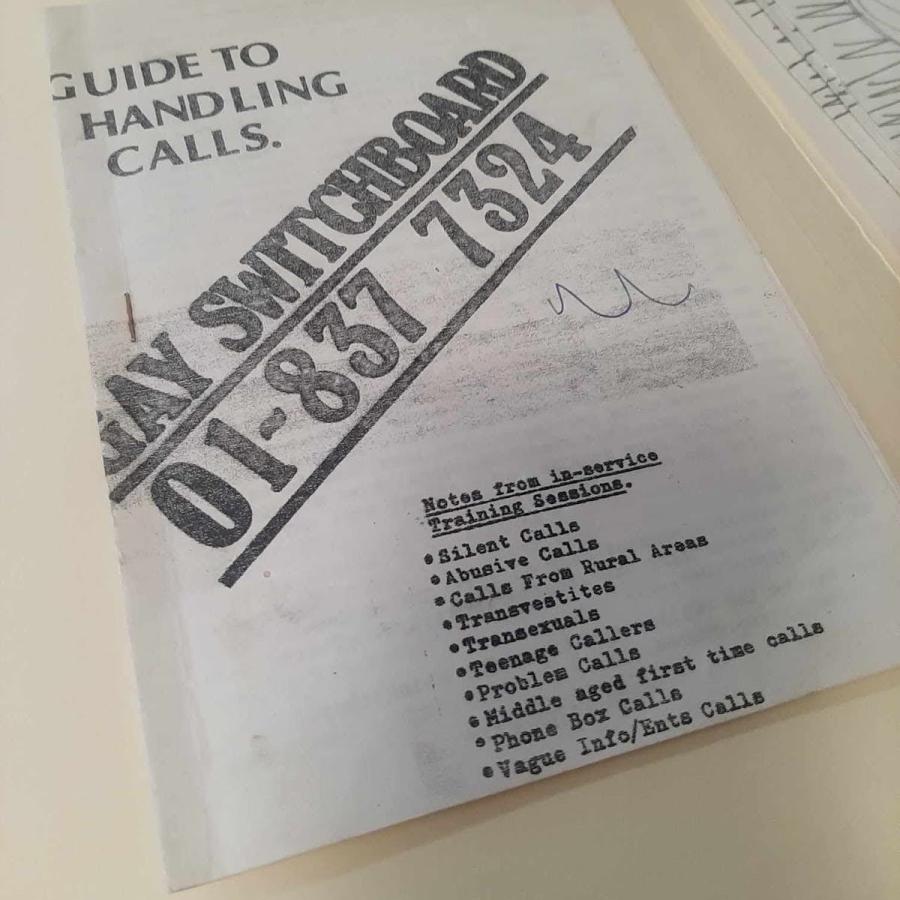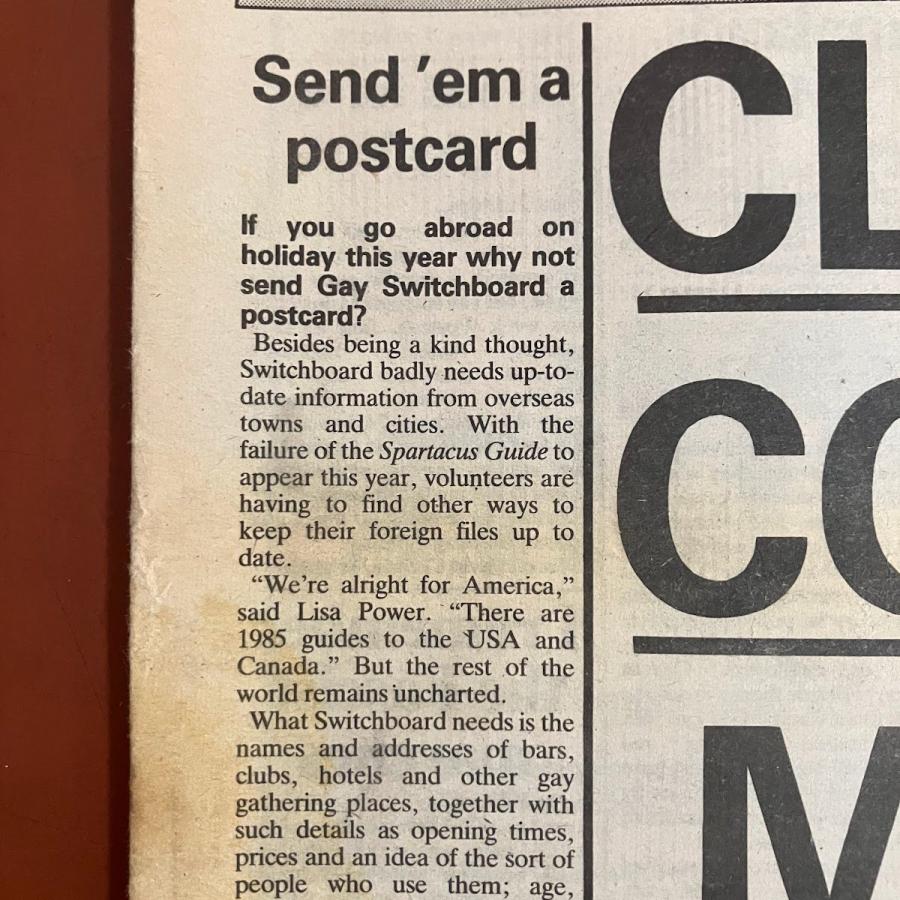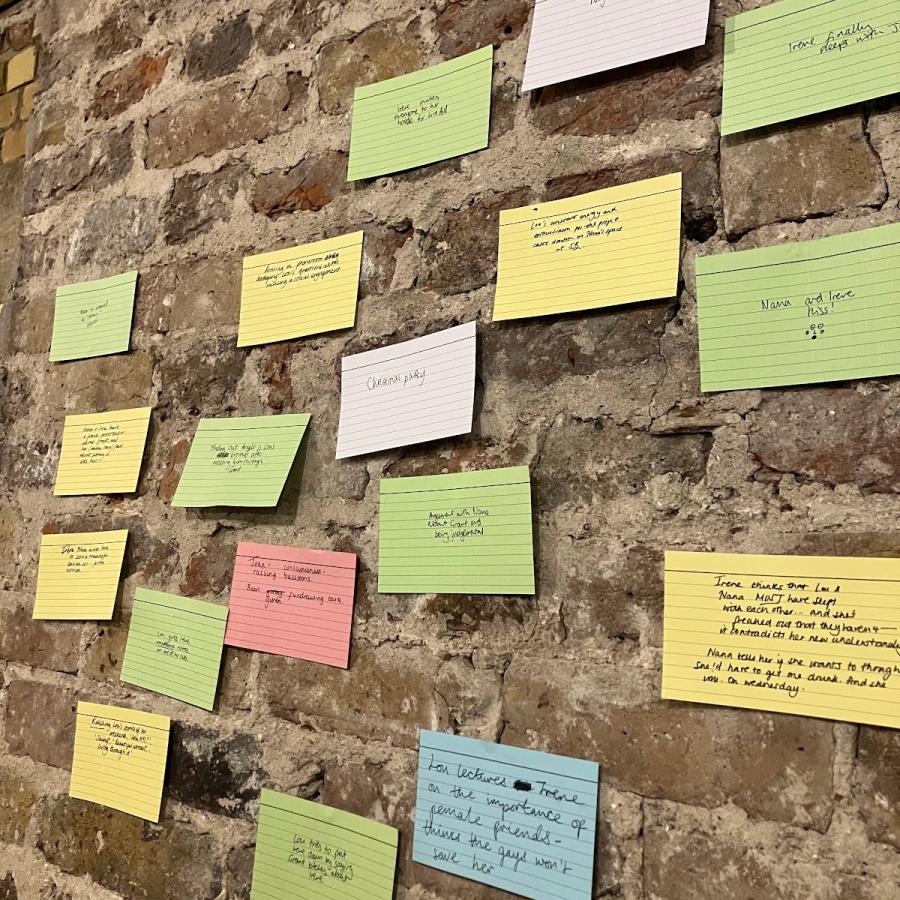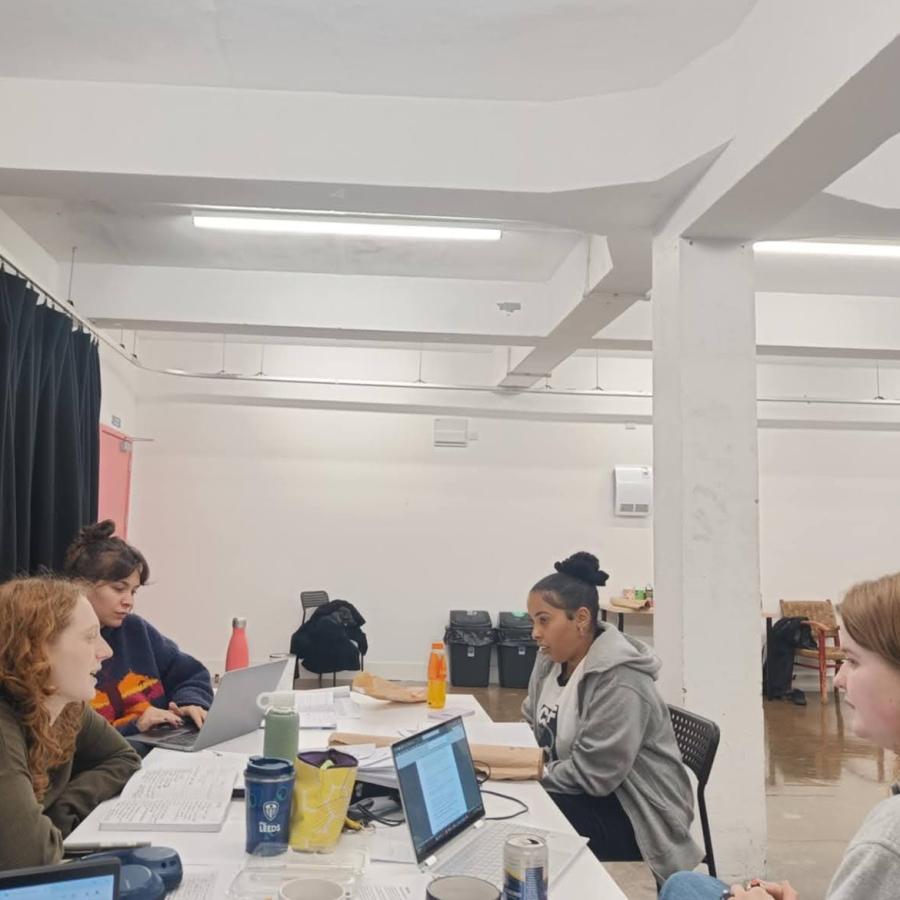Cassia Thakkar and Ella Pound from Doubletake Theatre discuss the process of making collaborative theatre using the archives of Switchboard, the national LGBTQ+ helpline.
Inspiration for new projects can sometimes be hard to come by. For us, visiting the Bishopsgate Archive for the first time in February 2024, it was everywhere we looked. In the archives, there is a whole history of objects, lives, and characters – almost more than three queer people creating a play about 80s lesbians could hope to come by. Sitting down, we were faced with a detailed collection spanning over 26 years. It covered everything from the foundation of London Gay Switchboard in 1974, the name change to London Lesbian and Gay Switchboard in 1986, to the present day. It didn’t matter if there was line upon line in the log books dedicated to missing pens or coffee shortages. All of it was fascinating.
The London Lesbian and Gay Switchboard was a voluntary organisation that ran a 24 hour helpline. Gay people could call up and ask anything from where the best clubs were to sex advice to help on coming out to family. The importance of such a service, pre internet, cannot be overstated. The log books, containing records of calls received, are filled with stories of young people kicked out of their homes needing help finding somewhere to live, closeted people with no one else to talk to, gay men targeted by the police needing legal advice and more.
With the onset of the AIDS crisis, an already essential service became lifesaving. The volunteers meticulously collected information on what AIDS was, how it was transmitted, and how to stay safe. In a time of total fear, government apathy, and misinformation, LLGS advised, counselled, and fought for those affected. Throughout the 1980s the organisation remained completely voluntary. Volunteers sacrificed their personal lives and their time to devote themselves to their community.
What drew us to this organisation was that it was one of the places where the idea of community between gay men and lesbian women was forged. Begrudging a lack of lesbian centred media, and having just binged It’s a Sin during lockdown, our director Molly Byrne was researching lesbian activism in the 1980s. This is when she came across extraordinary lesbian activist Lisa Power. In an interview with Pink News, Lisa spoke of the AIDS crisis as a pivotal moment in lesbians and gay men coming together. For her, the 1980s was when lesbians ‘kicked down the door’ and said they were part of the gay community too.
Through Lisa, Molly found Switchboard – now in its landmark fiftieth year – and she got in touch. They gave us incredible access to the logbooks, and that’s how we found ourselves surrounded by stacks of books charting the lives of the volunteers and the organisation, photos of fancy dress parties, badges advertising various causes, and a ridiculous number of condoms. We had the incredible privilege of watching historical moments unfurl in the logbooks; the day Mark Ashton (founder of Gays and Lesbians Support the Minders) died, the day HIV was identified as a virus, the numbers of AIDS cases rising month by month. We also got to see the response by the volunteers. Their warmth, their care, their community, their joy, their pitch-black humour in facing the bleakest of circumstances.
There are thousands of stories that could be told from these log books, but we wanted to centre lesbians, a whole ensemble of them, living, working, campaigning, and caring during the AIDS crisis. We wanted to explore the breadth of the lesbian experience at LLGS and the bonds and fractures between the women who volunteered there. We were especially interested in the space they carved out for themselves in a male-dominated organisation. From the name change, to a ‘women’s hour’ for female callers, to insisting that the men learnt about lesbian sex in order to guide callers, they certainly kicked down the door and continually advocated for themselves and the lesbians the helpline served. And they stood in continuous solidarity with the men dying of AIDS every day, many of whom they know personally.
To tell this story we found a cast of four brilliant writer-performers: Naphysa Awuah, Chakira Alin, Áine McNamara, and Anna Georgina. They started by immersing themselves in the archival material and the time period. They built on this with improv exercises, free writing, and further research. They crafted four characters. A month later they know them inside out; their favourite songs, their life stories, their relationships with each other. We worked out what drove those characters, what divided them, and what kept them together. We explored how people gave so much of themselves to the organisation and to each other, and in doing so changed the queer community forever. We also challenged our amazing designers, Ella Muir and Izzie Sayer, to spend time helping us to build this world using references from the archives. How did these characters express themselves, and what does our version of the phone room look like? From all of this, we built a story that will play out in the LLGS phone room.
Switchboard still exists today. Along with brilliant organisations like the Terrence Higgins Trust, the National AIDS Trust, and Positively UK, they are doing huge amounts of work to continue supporting the estimated 107,000 people living with HIV in the UK, and to fight against the institutional stigma and discrimination which still very sadly endure. We’ve included some resources at the end of this post which we encourage you to take a read of.
Devising a play is a challenge, but with first hand records of this extraordinary moment in history, and with such fascinating, beautiful and profound material, we know we can’t go wrong if we manage to share even a small part of this story with audiences. Plus, we’re bringing badges.
Resource list:
Wed 27 - Thu 28 Nov at 9pm
Tickets £8 + booking fee (work-in-progress)



